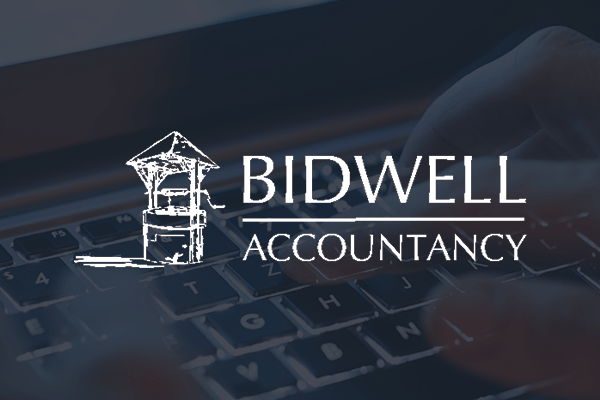July Newsletter

Newsletter July 2023
We have another information packed update for you this month. Do get in touch if there’s anything we can support you with or if there’s any additional information you need to clarify things for you or your business.
There’s a piece on the extension of the government’s new Help to Save scheme, an initiative for those on low incomes. For businesses operating in the hospitality and leisure sector, an important new law will protect those who earn tips, ensuring that they receive what they have earned. A further Code of Practice will be introduced to give more guidance on the distribution of such gratuities. There’s more information on the planned interest increases on HMRC charges on late payments. We have included some information about the VAT implications when transferring a business as a going concern - this is quite complex so please do talk to us if this is something you’re involved with or planning - errors can be costly. And finally, please check out the deadlines we have listed for June, through to mid July.
Simplified tax system for savers
The government has announced a number of new measures to help millions of people boost their future savings. One of these measures is a simplification of the Help to Save scheme.
The Help to Save scheme was launched by the government in September 2018 to help those on low incomes to boost their savings. Under the scheme, those eligible could save between £1 and £50 every calendar month and receive a 50% government bonus. The 50% bonus is payable at the end of the second and fourth years and is based on how much account holders have saved. The bonus is paid directly into the account holder’s chosen bank account.
It was announced as part of the Spring Budget measures that the government will extend the Help to Save scheme by 18 months, on its current terms, until April 2025. The government will examine how the scheme can be made simpler by reforms to how its bonus is calculated, the length of time an account can be open for and eligibility requirements, all with the aim of enhancing long-term savings habits.
The government also wants to address the fact that parents who have not claimed Child Benefit could miss out on building their state pension. Those affected will in future be able to claim National Insurance credit retrospectively. Further details will be published in due course.
Withholding tips from staff now unlawful
A new law that stops employers from withholding tips from people working in the hospitality, leisure and services sectors has come into force. The Employment (Allocation of Tips) Act 2023 received Royal Assent on 2 May 2023.
The Bill makes it unlawful for businesses to hold back service charges from their employees, ensuring staff receive the tips they have earned. The measures are expected to come into force in about a year, following a consultation and secondary legislation.
This means that more than 2 million workers will have their tips protected. HMRC has estimated that this new law will mean an estimated £200 million a year will go back into the pockets of hard-working staff by retaining tips that would otherwise have been deducted.
A new statutory Code of Practice will also be developed in order to provide businesses with advice on how tips should be distributed among staff. This Code is being developed and will be subject to formal consultation later this year.
Workers will also be given a new right to request more information relating to their employer’s tipping record, which will help them to bring forward a credible claim to an employment tribunal.
The Business and Trade Minister said:
'As people face rising living costs, it is not right for employers to withhold tips from their hard-working employees. Whether you are pulling pints or delivering a pizza, this new law will ensure that staff receive a fair day’s pay for a fair day’s work - and it means customers can be confident their money is going to those who deserve it.'
HMRC interest rates increase again
The Bank of England’s Monetary Policy Committee (MPC) met on 10 May 2023 and voted 7-2 in favour of raising interest rates by 25 basis points to 4.5% in a move to try and continue to tackle continued inflation. This is the twelfth consecutive time that the MPC has increased interest rates with rates now the highest they have been since 2008.
This means that the late payment interest rate applied to the main taxes and duties that HMRC charges will increase by 0.25% to 7%.
These changes came into effect on:
- 22 May 2023 for quarterly instalment payments; and
- 31 May 2023 for non-quarterly instalments payments.
The repayment interest rates applied to the main taxes and duties that HMRC pays interest on will increase by 0.25% to 3.5% from 31 May 2023. The repayment rate is set at the Bank Rate minus 1%, with a 0.5% lower limit.
Transfer of Business as a Going Concern
The transfer of a business as a going concern (TOGC) rules concern the VAT liability on the sale of a business. Normally the sale of the assets of a VAT registered or VAT registerable business will be subject to VAT at the appropriate rate.
Where the sale of a business includes assets and meets certain conditions the sale will be categorised as a TOGC. A TOGC is defined as 'neither a supply of goods nor a supply of services' and is therefore outside the scope of VAT. Under the TOGC rules no VAT would be chargeable on a qualifying sale.
All the following conditions are necessary for the TOGC rules to apply:
- The assets must be sold as part of a 'business' as a 'going concern'. In essence, the business must be operating as such and not just an 'inert aggregation of assets'.
- The purchaser intends to use the assets to continue the same kind of business as the seller.
- Where the seller is a taxable person, the purchaser must be a taxable person already or become one as the result of the transfer.
- Where only part of a business is sold it must be capable of separate operation.
- There must not be a series of immediately consecutive transfers.
- There are further conditions in relation to transactions involving land.
The TOGC rules can be complex, and both the vendor and purchaser of a business must ensure that the rules are properly followed. The TOGC rules are also mandatory which means that it is imperative to establish from the outset whether a sale is or is not a TOGC. For example, if VAT is charged in error, the buyer has no legal right to recover it from HMRC and would have to seek to recover this 'VAT' from the seller.
Tax Diary June/July 2023
1 June 2023 - Due date for corporation tax due for the year ended 31 August 2022.
19 June 2023 - PAYE and NIC deductions due for month ended 5 June 2023. (If you pay your tax electronically the due date is 22 June 2023).
19 June 2023 - Filing deadline for the CIS300 monthly return for the month ended 5 June 2023.
19 June 2023 - CIS tax deducted for the month ended 5 June 2023 is payable by today.
1 July 2023 - Due date for corporation tax due for the year ended 30 September 2022.
6 July 2023 - Complete and submit forms P11D return of benefits and expenses and P11D(b) return of Class 1A NICs.
19 July 2023 - Pay Class 1A NICs (by the 22 July 2023 if paid electronically).
19 July 2023 - PAYE and NIC deductions due for month ended 5 July 2023. (If you pay your tax electronically the due date is 22 July 2023).
19 July 2023 - Filing deadline for the CIS300 monthly return for the month ended 5 July 2023.
19 July 2023 - CIS tax deducted for the month ended 5 July 2023 is payable by today.

Unit 157, Milton Keynes Business Centre,
Foxhunter Drive, Milton Keynes,
Buckinghamshire, MK14 6GD
Bidwell Accountancy




